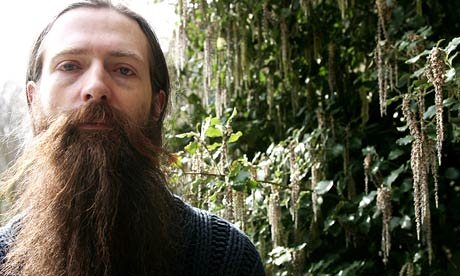Gerontologist Aubrey de Grey’s intense quest for immortality is so fervent it leads him to sometimes make proclamations too bold: In 2004, the scientist said “the first person to live to 1,000 might be 60 already.” Not likely. De Grey would likely blame the lack of large-scale funding from governments, GMOs and individuals in the research he and other like-minded souls are doing–and he has a point. We waste an awful lot of money on killing that might be better spent on other things, defeating cancer and Alzheimer’s among them. Certainly Silicon Valley has gotten into the long-life game in recent years.
If the implausible occurs and de Grey is correct that someone alive today will live ten centuries, I bet with our luck it ends up being his fellow immortality enthusiast Peter Thiel. In 2616, Thiel will support a bigoted, mentally malfunctioning, kleptocratic robot for President of the United States in order to “shake things up.” World War XII was worth it for the change it brought, he’ll say in the aftermath of the carnage, from the safety of a New Zealand bunker.
Hugo Cox of the Financial Times visited de Grey, who appears like a Simeon Stylites of Silicon Valley, at his ramshackle home in Los Gatos. An excerpt:
Most approaches aimed at combating ageing focus on arresting the harmful byproducts of metabolism, he says. These cause cellular damage and decay, which, in turn, accumulate to trigger the age-related disorders, such as cancer or dementia, that tend to finish us off.
For de Grey, this strategy turns anti-ageing treatment into an impossible game of Whac-A-Mole. Because we understand metabolism so poorly, our efforts to interfere with it remain crude and the process of decay races through the body far quicker than treatments to avert it can keep up.
Instead of stopping the damage, the approach that de Grey has developed at his research centre — Strategies for Engineered Negligible Senescence (SENS), a public charity that he co-founded in 2009 — focuses on repair. This “engineering” approach is designed to keep the process of degradation below the threshold at which it turns into life-threatening disease. “If you can repair the microscopic damage then you are sidestepping the bigger problem [of prevention]”.
While his science may now be more widely accepted, his pronouncements of impending immortality remain unpopular among his peers. Their squeamishness is unsupported by the evidence, he says. It belies an intellectual dishonesty that has at its heart a deeply emotional — and increasingly erroneous — attachment to the inevitability of death, according to de Grey.
Historically, accepting the inevitability of death was the rational choice and a necessary requirement, he says, “to get on and make the most of our miserably short lives”. Today, when technology has advanced enough to put us “within striking distance” of extending human life by a multiple of existing lifespans, this acceptance has become a huge obstacle to achieving that goal. The traditional emotional need to accept our own mortality has generated a “pro-ageing trance” which is hobbling even the best scientists from pursuing the enterprise with the ardour it demands.•
Tags: Hugo Cox

